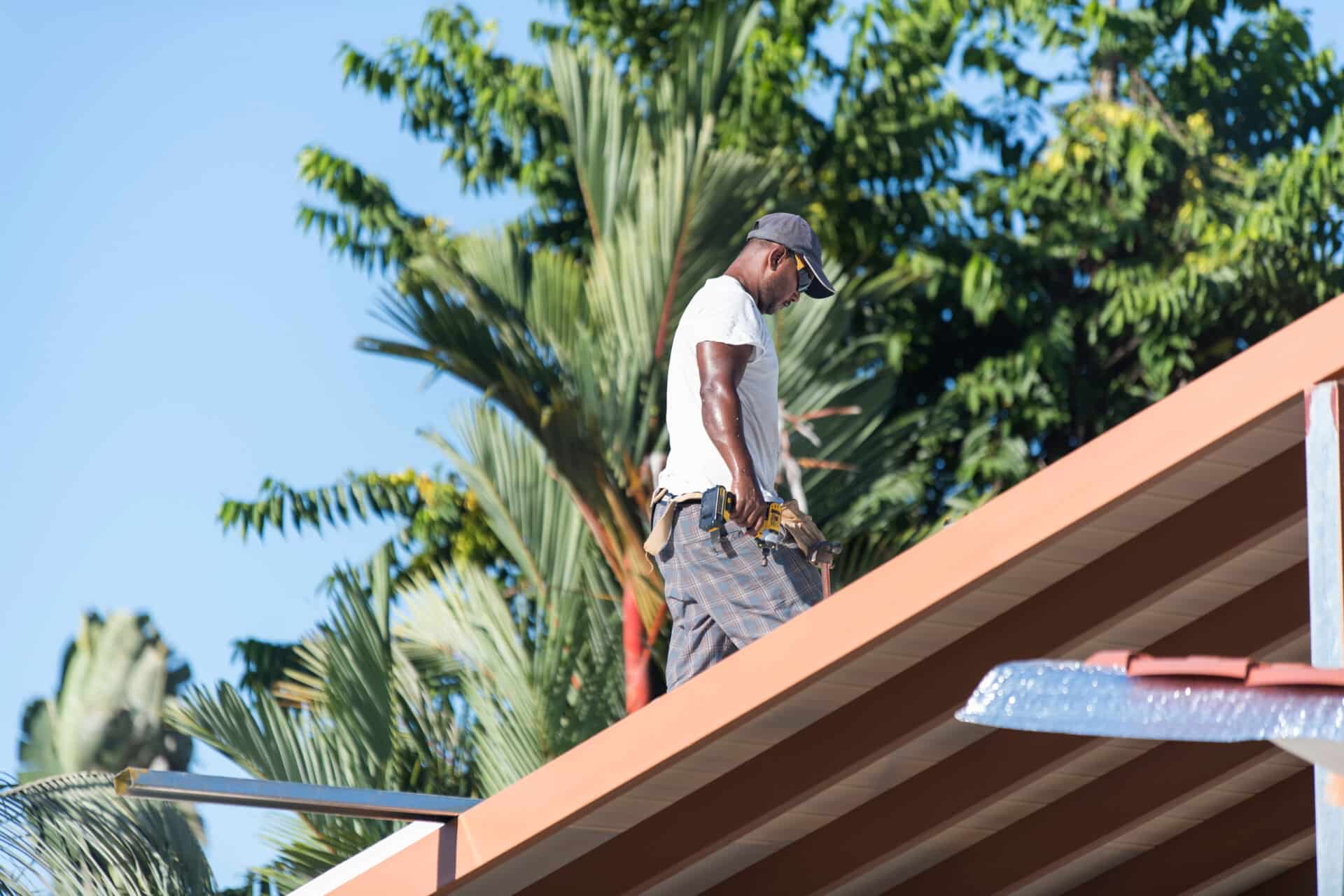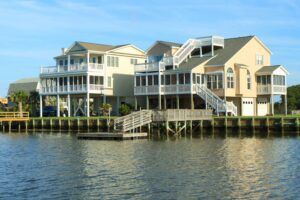The latest news shows that the Caribbean islands are some of the most vulnerable nations in the world regarding climate-related events. These disasters amount to high human losses, and the economic impact is dire.
However, the cause of much of the disastrous impact is the lack of sound infrastructure. This is excellent news for the construction industry because it allows for the opportunity to bring resilient and sustainable projects to these nations. It’s a win-win for all.
If you’re interested in undertaking a construction project in the Caribbean, this article is for you. Let’s dive deeper into what you need to know about construction in the Caribbean and how to make your project a success.
Challenges of Construction in the Caribbean
Getting paid to live and work in the Caribbean sounds like a dream job for construction professionals. This includes alluring places in the Caribbean region, such as:
- Anguilla
- Aruba
- The Bahamas
- Barbados
- British Virgin Islands
- Cayman Islands
- Dominica
- Dominican Republic
- Grenada
- Saint Lucia
- Saint Martin
- Trinidad and Tobago
- Turks and Caicos
- United States Virgin Islands
However, building in the Caribbean comes with many challenges, its vulnerability to climate change only being one.
For starters, there is still a big colonial hierarchy in Caribbean society. If you recall, several colonial powers from Europe colonized the Caribbean throughout its complex history. This includes the Dutch, English, French, Portuguese, and Spanish.
In countries like Barbados, Haiti, and Jamaica, 70% of the population is African-Caribbean, yet there is a lack of diversity in leadership positions in the construction industry in these countries. A skills gap exists in the construction industry in these countries, which may be due to several factors, including limited access to education and training.
This situation impacts the construction industry’s workforce quality and efficiency, as companies often express concerns regarding the skill levels and preparedness of employees. The limited availability of formal education and training opportunities means that workers frequently rely on on-the-job learning, which can perpetuate inefficiencies and hinder the progress of construction projects.
Another challenge is that companies must import all materials since there is virtually no local manufacturing. Many things can delay shipments, from severe weather to errors in shipping paperwork, causing a headache for everyone involved. Also, all imports require duty payment, increasing project costs.
Yet, despite the challenges of building in the Caribbean, incredible opportunities are available. Construction professionals are in high demand and will receive a generous salary for investing time and money in the region. General contractors and subcontractors alike can access immense profits from these projects.
Importance of Resilient Construction
Because Caribbean countries produce far fewer emissions than larger countries, until big emitters change their ways, Caribbean countries will have to find alternative ways to adapt to the rising climate expenses.
Resilient construction is one place to start. Implementing building designs for the tropical climate in tandem with using superior supplies is one of the best ways to combat climate-related economic disasters. For example, outer walls should use concrete and stone, while roofs should use concrete and metal for the most resilience.
Importantly, resiliency doesn’t have to equate to more expensive projects. For instance, sourcing good wood from honest sources is economical because it’s more durable and requires less maintenance. It also aids sustainability efforts to ensure deforestation isn’t occurring.
Not to mention, investing in resiliency means less physical (and economic) damage to your project will occur during a climate event.
Choosing the Right Construction Supplies
New projects in the Caribbean require the best construction supplies to guarantee the functionality and integrity of the project. Here’s what you need to know about choosing the right building supplies.
Building Materials
Long-lasting and sustainable projects begin by using suitable materials. From the foundation and insulation to the siding and doors, every material should be suitable for the hot, humid climate of the Caribbean.
For example, beautiful tropical hardwoods from countries in Latin America, like Brazil, Guyana, and Venezuela, are an excellent choice for Caribbean construction projects because they have a natural resistance to the following:
- Fire
- Humidity and water
- Insect damage
- Rot
Decking and Railing
Tropical climates require sturdy decking. Luckily, several lumber and seawall brands offer durable materials suitable to ocean environments, making them the best for luxury Caribbean construction projects.
Some of these brands include:
- Timbertech
- Trex
- WearDeck
Other Supplies and Hardware
Lastly, don’t forget about the hardware. Your project needs durable hardware resistant to ocean environments to avoid corrosion.
Then, after getting the essentials, think about anything extra you want. From railing embellishments and staircases to porches, docks, and more, you want to choose the best finishing touches for your project.
Finding the Right Supplier
Finding the best supplier for construction in the Caribbean islands could be the difference between finishing your project on schedule or suffering from work stoppages. It could also be the difference between staying on budget or going over.
With continued supply chain issues, which came to light during the pandemic, having a partnership with a fair and honest supplier is crucial.
- Here are some tips for finding the best construction materials supplier:
- Ask those you know for recommendations
- Look for a supplier who can handle your specific needs
- Be on the search for a good after-sales service team
- Inquire about your supplier’s background and experience
- Check the supplies’ quality for yourself
- Aim to create a long-term business relationship with your supplier
Benefits of Using an Experienced Exporter
Finding a supplier who can meet your needs is just the first step. You also need to consider how to get the supplies to your slice of Caribbean real estate.
Exporting materials to the Caribbean is challenging, so finding a supplier with extensive export experience is imperative. Their expertise will guarantee all the customs paperwork is in place so that your materials arrive on time without any transit delays.
Get Expert Guidance on Construction in the Caribbean
Although construction in the Caribbean comes with unique challenges, there are plenty of ways to overcome these challenges, build amazing structures, and support local Caribbean economies.
If your company is searching for a materials supplier, contact us to learn more about our product offerings. Located in Florida, our company focuses on simplifying the exporting and construction processes by supplying everything your project requires. Our inventory consists of only the highest-grade materials, suitable for harsh marine and tropical climates.
- About the Author
- Recent Posts
Brad Enfinger has been in construction for over 20 years and has been involved with every material from concrete slab to laying the roof on houses. Brad’s diverse experience has given him the knowledge needed to assist those with shipping building materials, whether it be a house, pole barn, deck, or a dock. Brad at Harbor Exports has anything for your building material needs and can export material all over the world.




